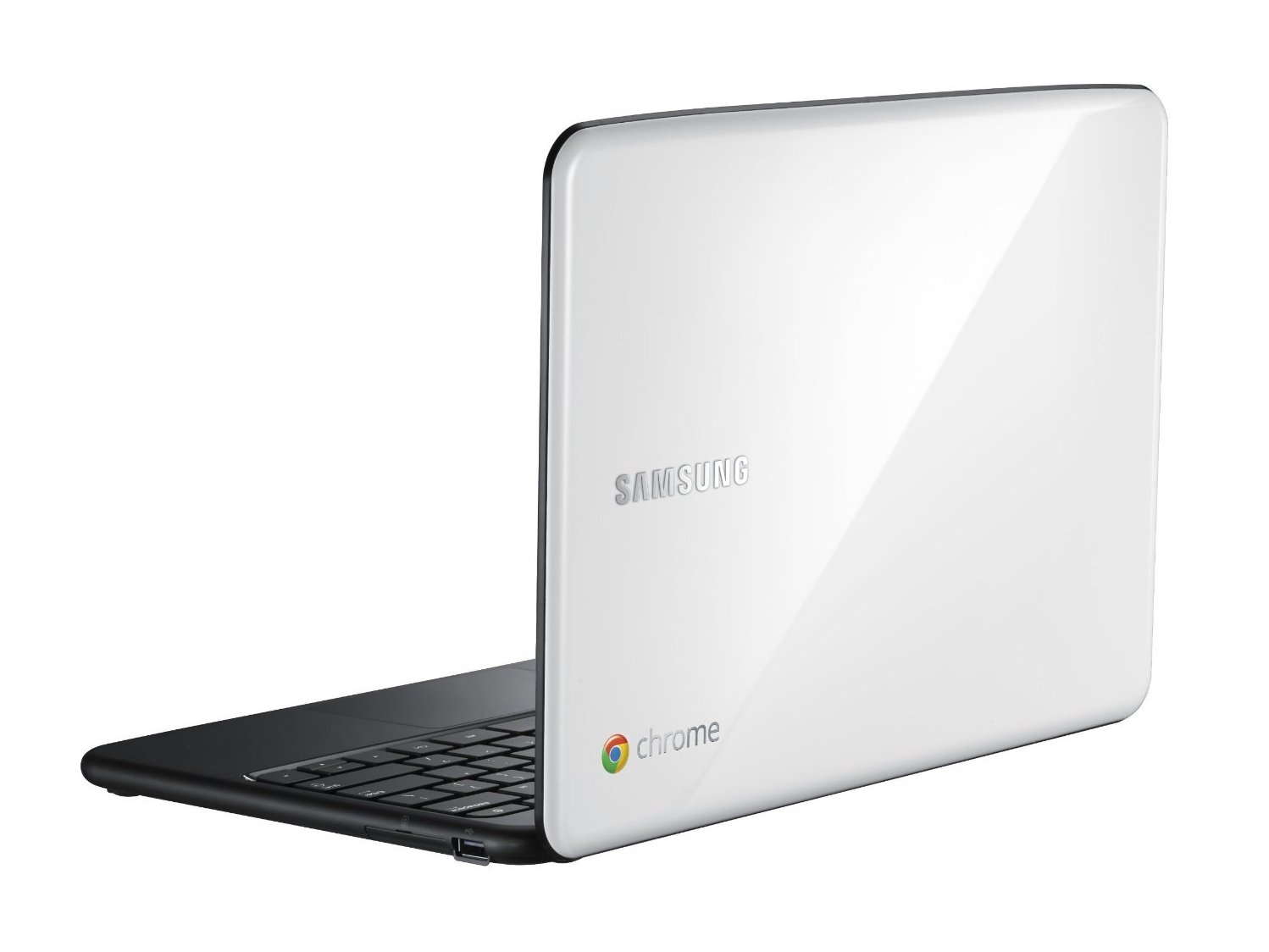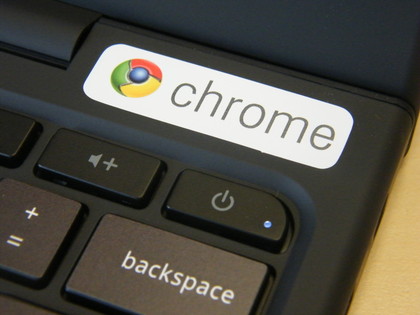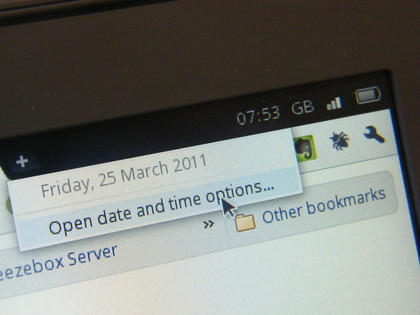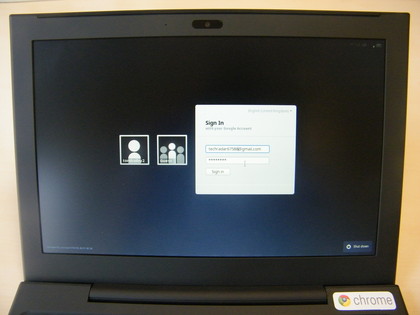Google: Chromebooks will succeed where Linux netbooks failed
Will you be buying one?

Why would you wait for over a minute for your Windows 7 PC to boot up if all you want to do is check your email and catch up on world news?
That's the key question that Google is hoping will persuade even tech-savvy punters to splash the cash and buy a 'boots in 10 seconds and resumes instantly from sleep' Chromebook this summer.
In doing so, Google hopes to break the Microsoft-Apple stranglehold on home computing that has seen only two major operating systems succeed in 30 years.
The stats don't lie - most of us spend all our computing time within a web browser, and Google's philosophy for its browser-based Chrome OS is that you shouldn't need to tinker with your laptop, you shouldn't need to maintain it or change settings, you should simply 'use' it.
TechRadar spoke to Sundar Pichai, senior vice president of Chrome at Google, at the launch of the Samsung Chromebook this week.
Pichai says that Chromebooks are ideal for anyone who doesn't want to deal with the complications that come with more traditional operating systems.
"I've given Chromebooks to thousands of users, friends and family. The extent to which is that they feel their life is made better compared to a traditional Windows experience on a netbook," he says.
Sign up for breaking news, reviews, opinion, top tech deals, and more.
"My dad used to ask me technical questions every few days, I gave him a Chromebook and he's never had an issue with it. I think it's such a simpler end to end experience it's just a no brainer.
"Even the hardware for a lot of people is easier than most netbooks. Most netbooks are cramped, you can hardly see the web. We really spent a lot of time trying to give you a lot of pixels so you can maximise your web usage, a full size keyboard, the trackpad is really big, literally you can take it out all day without a charger and most importantly you do nothing other than use the device. You just use it. You're not maintaining it, you're not taking care of it, you just use the device. That's how computing should be."

Chromebooks for power users?
Pichai admits that for power users, Chrome OS is not going to replace their main machine, but says these people only make up around two per cent of the world's computer users.
"If you're a regular user of traditional Windows desktop applications like Photoshop, this is not the right computer for you. So I think as long as you spend most of your time on the web, which is true for most users, it's a great choice and most people who've shown interest in buying a Chromebook or have one of our test machines, already have a computer at home, but they get this and this is what they spend most of their time on. And they can use that other machine for their legacy needs."
While the reception to Chrome OS has been on-the-whole a lot more positive than it perhaps could have been, TechRadar readers have been less than receptive to the £350 asking price for the Wi-Fi-only Samsung Chromebook. But Pichai says the price is fair:
"The price point comes from the grade of hardware. I think if you compare the equivalent prices of hardware, I think we've done a great job to make the hardware better. If you think a windows 7 netbook is more attractive because it has more software then I think you're just opting in to two very different computing models.
"If you get Windows 7 on your computer, with that you inherit all the design decisions and the choices and the security trade offs and everything that's built in. You may be a sophisticated user - and I think maybe one to two per cent of the population really enjoy dealing with those issues - Chromebooks might not be the right device for you.
"But if you're asking me why people should buy it, then everything I see, in my experience with friends and family, people like the change, they find it better. Once you have been using Chrome OS, you can pick up any Chromebook anywhere and you can log in and all your stuff is there waiting for you as though it's your device."

Chromebooks vs Linux netbooks
Of course, readers with a sharp memory will recall the netbook revolution of 2007 when Asus launched its first Eee PCs. They cost under £200 but ran Linux rather than Windows and return-rates for these products were amongst the highest in consumer electronics history. But Pichai thinks there is no comparison between Linux netbooks and the new Chromebooks.
"I have thought about this a lot and I bought a Linux netbook too to test it out, and the thing I found was that those netbooks did not offer a great user experience. Linux netbooks tried to have the same metaphor as windows, so you constantly felt like you were in a Windows experience but it wasn't the same and it was confusing.
"But whoever you give a Chromebook to, they log in and they're in a browser - it's the most familiar environment to most users because they spend most of their time in a browser anyway. Even a technical user could struggle with a Linux netbook, but give them a Chromebook and there's just no hesitation, they just log in and start using it, so I think that's a huge difference. As long as you know how to use a browser, there's literally nothing you need to learn, nothing."

Google is attempting to smooth over the transition period for users by making Chromebooks available online only for the time being. The idea is that by walling off Chromebooks from traditional home computers in stores, it reduces the risk of people buying them without fully understanding what they are.
"We didn't want them to be just lying around where people who don't understand it walk away with it by mistake," says Pichai. "Our intention isn't to force this on anyone, by having it online you come and buy it because you know what it is and what it's all about.
"We have 160 million users of the Chrome browser and for them, buying a Chromebook would be the most seamless transition ever. If you're already using Chrome sync, and you log in to a Chromebook and first time, it's all there.
"And there's other things. The guest mode in Chrome OS is one ofthemost private modes ever built into a computer. We care about security a lot internally and I was speaking to Eric Sachs who is head of security at Google and I said, 'so somebody has sent me a really shady URL, can I click on it?' He said, 'as long as you're in the guest mode of Chrome OS, I wouldn't worry about clicking on anything'.
"That's the promise we can make to a user. We had a zero day flash bug last week, we got a patch from adobe on Sunday morning, by Sunday afternoon we updated all Chrome users and all Chromebook users. And it all happens in the background. It updates all on it's own without you even knowing about it."
TechRadar is in possession of a Samsung Chromebook and we'll bring you a full review in due course.
-----------------------------------------------------------------------------------------------------

James was part of the TechRadar editorial team for eight years up until 2015 and now works in a senior position for TR's parent company Future. An experienced Content Director with a demonstrated history of working in the media production industry. Skilled in Search Engine Optimization (SEO), E-commerce Optimization, Journalism, Digital Marketing, and Social Media. James can do it all.